10 Things Seafarers Desperately Wish From the Maritime Industry
Seafarers perform one of the toughest jobs in the world by making difficult sacrifices and putting in real hard work. As the world gradually becomes aware of the hard work mariners perform on ships, the difficult financial condition of the industry and the rapidly changing norms and regulations are forcing many seafarers to leave the field.
Things are transforming rapidly in the industry and seafarers are overburden with several new issues. They need some change which will help them to live a better and safer life at sea, along with making them feel good and satisfied about their profession.
Mentioned below are some of the important things seafarers desperately want from the maritime industry.
1. Shorter Contract Period and Round-the-year Salary
No one wants to stay away from his or her loved ones for a long time. Being the kind of profession they are into, seafarers are forced to be away from their family for several months together. Though every seafarer eventually accepts this lifestyle, there is always a longing to meet the family as soon as possible. Many companies have come up with shorter contracts for their crew but they are still not available for all ranks and departments.When we asked seafarers about the one thing they would want to change about their industry, the first thing that most of them suggested was “shorter contracts”.
If in future this step is implemented properly, it would change the way seafarers look at their profession. Short term contracts would motivate them to go to the sea frequently and also make them more enthusiastic about their work. Commercially, it might not be a viable idea for shipping companies who have to bear a variety of expenses from flight tickets to on board food, but if a way is found to implement shorter sailing contracts, it would be one of the best steps taken for the betterment of seafarers. This step might also interest several others who are planning to join the industry but are uncomfortable with the idea of staying away from their family for several months.
Also, if there is a system wherein seafarers can go back to the ship which they have already sailed on, the amount of time spent by each to understand and adjust to the ship’s systems would be reduced. As they will be already aware of the ship they have just joined, it would relieve the seafarers of the stress they have to go through every time they join a totally new ship.
Several shipping companies also offer round-the year-salary to seafarers. This is also a great way to ensure greater job security to the seafarers who generally earn when they are on ships. Many seafarers consider the time at home “wasted” and want to earn during this “free” time as well. Round the year salary make them more secure about their jobs as they can expect salary even when they are not working at sea. As this system usually involves shorter, pre-scheduled contracts, seafarers will not have to wait for their ships for months and can also expect to get “sign-off” on time.
Though most of the points mentioned above would require a thorough overhauling of the system at the cost of additional expenses and lower profits, such system would work great in retaining professionals, who have started looking for better opportunities on shore and have already thought of quitting the sea life.
2. More Security from Pirates
Piracy at sea is a serious threat to the seafarers and the maritime industry. Millions have already been spent until now to protect seafarers from somali pirates. In spite of all the preventive measures, piracy incidents do take place frequently, posing a serious threat to the lives of seafarers.
Sailing in piracy zone area is a dangerous task and seafarers often complain that shipping companies are not transparent when declaring the routes of the assigned ships at the time of joining. Many a times the ship’s route are changed to piracy infested areas without any prior notice to the seafarers. When seafarers complain, they are threatened of getting sacked and losing their jobs. Thus, they are left with no choice but to continue sailing in such dangerous waters.
Having said that, many seafarers do not mind sailing in areas of high piracy activities, provided they are given the right kind of protection with armed security personnel and anti-piracy weapons. But unfortunately most of the ships still rely on their own systems (fire hoses, flares etc.) to protect themselves from pirates.
Considering the grave threat to the lives of seafarers around the coast of Somali, seafarers at least expect more security measures and transparency from the shipping companies.
3. Allowing Adequate Shore Leave
With the rising threat of terrorism, countries around the world are restricting seafarers to go out at ports. When the ship is at port, shore leave is the only relief for seafarers from their hectic schedules. It is the a way to break the extreme monotonous routine that is created on board from several days of continuous sailing.
The reducing loading/unloading time of cargo and increasing security measures and maintenance work at ports are not only preventing seafarers to go ashore but are also greatly affecting their mental health. Though steps are being taken to increase the facility of shore leave, seafarers often complain of months of continuous sailing without a single day of shore leave at ports. This is seriously a sad state!
Shore leave is the right of every seafarer and allowing them adequately will eventually increase the overall productivity of work on ships.
4. Solving Unemployment and the Gap between Demand and Supply
Unemployment (especially at the starting level) has marred the image of the maritime industry around the globe. Tough financial situation of the industry has forced shipping companies to cut down on their ships and number of crew members. Most of the shipping companies consider trainee engineers and cadets as liabilities and have even stopped recruiting them to cut their costs.
Job opportunities at the starting level are extremely sparse and there are specific reasons deck cadets and junior engineers are not getting jobs. The number of young professionals entering the field are increasing every year while the demand for professionals is reducing. A new maritime academy crops up every month, churning out hundreds of professional every year. These institutes are least bothered about the placements of their students and do nor understand the difference between quantity and quality of professionals. The lack of jobs has also given rise to fake job agents and employment scams in the industry. Until this ” lucrative business” is stopped, the gap between the demand and supply of professionals will keep on increasing, along with disappointment among seafarers.
It is to note that today, even those at the higher ranks have to wait for their turn to join ships. The maritime industry thus needs a some drastic changes to create more opportunities for seafarers at all levels.
5. Proper implementation of MLC – Providing Adequate Rest Hours
Working on ships is a tiring job. Human error resulting from fatigue and work stress has been a reason for several accidents on board ships. The latest implementation of MLC, 2006 has brought a wave of relief among seafarers. However, strict implementation of rest and working hours on board ships have always been a problem . Seafarers have often complained of lack of sleep and hectic schedule, leading to accidents and injuries.
As work at ship is physically and mentally taxing, shipping companies should make extra efforts to ensure that their crew is getting the right amount of rest.
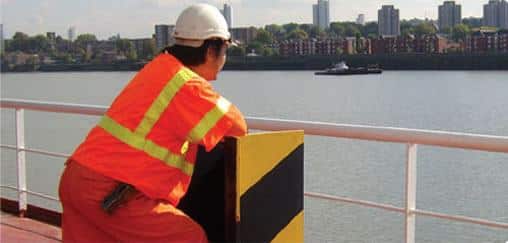
6. More Company Support
According to ITF, “Seafarers are among the most exploited and abused groups of workers in the world. Yet their plight is barely recognized by the mainstream media and public opinion”.
A recent incident of a seafarer being jailed in a foreign land because of ship detention came into the limelight. According to the reports, the captain of the ship was imprisoned for more than seven months and neither the company nor the government had taken any substantial steps to get him out. The governments of both the countries were too much involved in playing politics and the shipping company was least bothered, leaving the seafarers at the mercy of the fate and biased laws of the foreign land. When such kind of accidents occurs, the innocent and helpless seafarers are always at the receiving end. They suffer while those in power continue to play their games.
It is therefore important that there are properly written rules and procedures, which are adopted by the shipping companies and respective nations. Hard working seafarers shouldn’t be suffering because of international politics or the fault of the shipping company. More support from shipping companies is extremely important for seafarers to ensure their safe and secure voyage in international waters.
7. Improved Communication Services
When at sea, seafarers long to talk to their loved ones back at their homes. In spite of all the advances in technology, communication systems at sea have not been improved as much as they should. When the ship is at ports, seafarers get a chance to contact their loved ones (But many a times calling cards are not available at ports). Tele-communication is the only medium through which seafarers are connected to their families and therefore an efficient and cheaper mode of communication is desired by all seafarers at sea.
In the last few years, many shipping companies have started providing internet access (mostly limited) on board ships. However, due to the recent financial slack, most of the shipping companies have stopped these services. Moreover, satellite phones are extremely expensive and it’s something that is always kept for emergency situation.
A continuous, uninterrupted internet and tele-communication services is a long-time wish of seafarers around the world.
8. Reduced Paperwork
The ISM code brought a major change in the duties of seafarers on board ships. Along with the routine responsibilities, they are now supposed to take care of a heap of paperwork for administrative purpose. This additional duty, though important, has become burden on seafarers who are already complaining regarding lack of sufficient rest hours.
The increasing amount of paperwork has not only added stress on seafarers but have also made them less focused on their core duties. Though the whole idea of ISM code is to increase the level of safety on board ships, the time allotted for paperwork often clashes with rest hours and other important duties.
Thus, steps must be taken to ensure that the additional job do not become a burden on seafarers, producing results which are opposite to what the code actually intends to generate.
9. Less Stressful Examination System
Let’s face it, the process of clearing maritime examinations in order to become eligible for promotion on ships is extremely tedious and stressing. Even though the rules and regulations that govern ships in international waters are same for almost all countries, the examination and evaluation systems are not equal at all. Each nation has its own method of examination (most of them all extremely tedious) and this prevents establishing of a universally accepted standardized system.
Moreover, these examinations are extremely stressing for seafarers, who have to wait for months to clear them. It’s a mammoth task wherein the seafarers have to go through several attempts of written and oral examinations before they are given a “clear” certificate. Moreover, the oral examinations usually take several months and attempts to clear, which is the root cause of high level of frustration among seafarers.
Seafarers around the world expect a more streamlined system of examination which is not only stress-free but also saves a lot of time. They also wish that they are treated with utmost respect at the examination centers and their time is valued throughout the entire process.
10. Better Salary
Last but no the least, the most debatable and common request among seafarers from every nation is that of increment in their salaries. Seafarers often complain that every year the number of responsibilities and jobs increase, but the remuneration/salary offered to them remains the same.
When we talk about land jobs, generally there is salary increment of certain percentage every year. However, when it comes to seafarers, they are stuck at the same salary which they used to get two years back. Seafarers expect that they at least get back something which is equal to the amount of efforts they are putting in, if not more.
Lately, the shipping and manning companies have also got into the practice of extreme negotiation when it comes to salaries of seafarers. This has led to a lot of dissatisfaction among seafarers who are being insulted because of such behavior.
Just like any other industry, maritime industry also has its own set of problems. The above mentioned ones are some of the most important things seafarers desperately want from the maritime industry, as early as possible.
Do you know of any other change that should be included in the list? Let us know in the comments below.
Note : The article has been written solely from the seafarers’ point of view, focusing on the problems they face at sea. We know that there are several other factors involved with every problem mentioned above and they are also worthy of mention. But by no means are we trying to demean any maritime authority or organization. The main intention of the article is to spread awareness among people regarding the problems faced by maritime professionals.

About Author
Raunek Kantharia is a marine engineer turned maritime writer and entrepreneur. After a brief stint at the sea, he founded Marine Insight in 2010. Apart from managing Marine Insight, he also writes for a number of maritime magazines and websites.
Do you have info to share with us ? Suggest a correction
Related Posts
Subscribe To Our Newsletters
By subscribing, you agree to our Privacy Policy and may receive occasional deal communications; you can unsubscribe anytime.



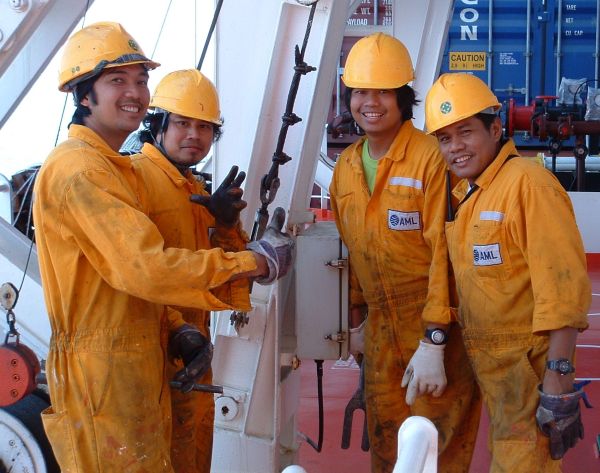




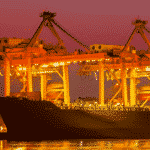



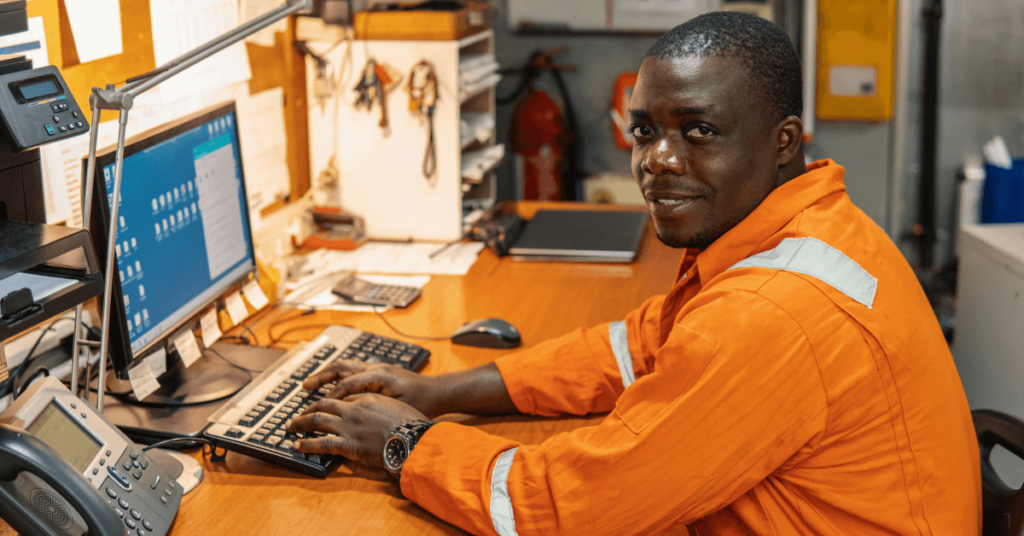

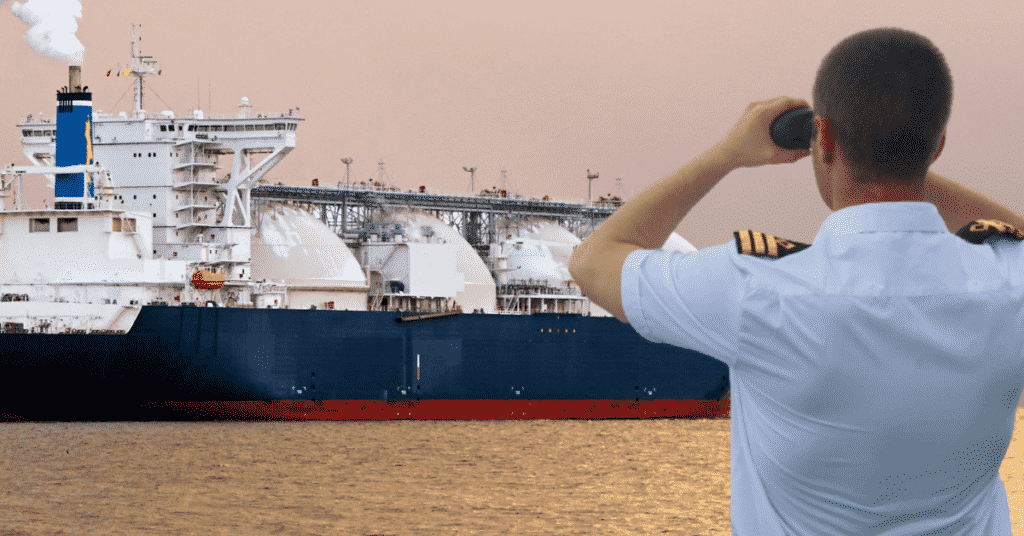


MLC Capital & friends – bad news
Since I have posted to look into the implementation of MLC 2006, i have received several responces and all of them have been negative experiences. People losing their deposits and unable to contact anyone from the company. They put on a good show but they will not follow through. I had my attorney review the contract they sent me and he told me there are some big loopholes in it and they could take my $$$ without any problems.
Good luck and becareful
Shorter contracts for all grades and ranks of seafarers will benefit. They are all human beings. Salary may differ from rank to rank. The profit the shipping companies make should be shared with the most important people, the mariners
A rotation between on-board and on-shore job would be a win-win situation, both for the company and the mariner. Of course, this system, most probably, cannot be implemented for all, but for most, it would do. This system can ensure that the company retains the employees better, and as for mariners, this system would keep them busy during the mandatory rest period, hence pushing aside the “helpless” feeling. They can be paid a lesser salary but nevertheless, they are paid and doing some work!!! 🙂
A nice write-up. It will be good if all stakeholders in the industry reads, understands and considers the plights of the seaman. Like the examination standard for instance, I have discovered that developing countries that have little or no facilities of training have made the system so tough that seafarers in their country or region are losing fate. These countries have assholes, intimidators and saddist as examiners. These examiners are so outdated that when you tell them what is obtainable in the profession now, its as if you are insulting them. All Government should try to evacuate the kind of human beings they are using as examiners. Also all contracting Governments try as much as possible to implement the provisions of MLC 2006 to the latter.
One very big problem in the industry currently is the rating of Deck Seafarers higher than Engine Seafarers which I feel is very wrong and would eventually lead to shortage or scarcity of Engineeroom personnel in the nearest future. Lets look at it critically, what are the jobs of the Navigators onboard ship? and what are the jobs of Engine Officers onboard ship? The answer to this question shows how the Engine Officer have been marginalised and ill-treated all over the years. The industry should do something to correct these trend if not it will loose all its competent, experienced and knowledgeable Engineers very soon.
Greater appreciation for seafarers by the company is much needed. People work just as well for honour and excellence as they do for money. Companies must promote merit and reward merit, and create satisfying employer to employee relationships. At the end of the day, once the terms of the contract and the salary has been worked out, a job well done and well appreciated is what any seafarer seeks
Viewed from its opposite extreme, a seafarer must not be stressed by unnecessary pressure and forced to take the blame for every operational error, commercial loss or underperformance or incident without a fair and constructive analysis of the circumstances.
A lot could already be done, if the superiors would value the work done by their ratings more. This can already happen by better communication and in showing respect for the ratings.
How often have seafarers to ask for cash advance? Why can’t the master communicate when he intends to do so? And why do seafarers have to request it? If you understand the culture of your crew members you can understand how important cash advance will be for some.
A lot of times the officers complain about too much paper work. While they have cadets on board they could make good use of cadets as there is a lot of paperwork required according to STCW. Instead they are sweeping a lot. Why not relieve yourself of your paper workload and train the cadet properly?
Anyway, cadet onboard training is often a cause of unhappiness. The officers should understand that they train their own colleagues as chances are high one stays in the same company. And even if not, bad training leads to bad reputation in the industry.
I disagree with your #3 “Allowing Adequate Shore Leave”. You are there for work and you are not a tourist. Yes, I agree with UMA that there’s a rotation between on-board and on-shore job that would be a win-win situation, both for the company and the mariner. And I agree with “Shorter Contract Period” and “Improve communication services” because out of 100 that’s the 90% answer to overcome homesick at sea and to relax from pressure at work.
@Carfel: Thank you for your opinion. I still believe to break the monotonous situation and to increase productivity, shore leave is extremely important. Seafarers are humans too.
Nothing mentioned about the Courses that all seafarers have to do after every 5 years. More courses have been introduced for different type of vessel. During leave period all seafarers are busy doing courses . Why the seafarers are forced to do the courses every 5 years when they are still sailing and have been updated on board as they are to be part of the drills . Sorry to say it’s money making racket going on.
Good day, you’ve written all valid points congrats on that but your #9 point is the most appropriate. Shipping still conducts exam on the basis of a stone age system. The worst of them being oral exam. A person works on ship for let’s say 6 months and get a good report on his or her performance, something like to be promoted upon getting a COC but when you go for oral exam, let’s say in 2 hrs time an examiner judges your competency and tells you that you have failed. Failed on what bloody grounds, cos you were not able to give answers which an examiner expects. Seafarers should be treated as humans not parrots. There are millions of things which happen on ship, people learn everyday at sea it’s a continuous learning process, when in doubt we consult each other or the books we carry on ships or maybe at times we take advice from office too. Failing a candidate just cos he was not able to vomit like a parrot is not only frustrating but disgusting too. Shipping industry and people sitting in offices or marine offices should not just judge a person on the basis of his or her capacity to mug up things. 90% of the guys after coming out of oral exam forget what they learnt cos the whole idea was to pass the exam not to prove that whether you can work smartly and safely on a ship. Anyways, we, despite the fact that world would cease to exist if we stop doing our job still have to face the brunt of everyone. Still living in stone age society where we are never considered as humans. Yes I choose this profession cos I love sea, spent hell lot of time of my life out there yet there is never a surety about anything. We grew up learning as a cadet that “sea is cruel, it commands respect and demands action” yet when you sit for an oral exam it’s something like you become a dog and have to bark the tune which other guy wants you to or you fail. Hope someday when this stupid system is revised and seafarers are judged on the basis of their smartness not as a parrot, it would be a better place.
The fact of the life is that you carry on despite the fact that you know you are being tortured and ill treated on various levels in various ways. Nothing changes, nothing has and nothing will. We are still the modern day slaves expected to carry our duties in the most professional manner. The only thing which takes us back to sea is the love and respect we have for it. Atleast to me it is still heaven on earth but sometimes this heaven gets rattled when you get a person who thinks, who knows everything and has risen up fast and thinks the other person under him is useless. That’s the irony cos maybe the other person is more practical and smart but couldn’t be a parrot so he is suffering. Anyways carry on the good job guys, be safe and be strong.
Shipping:one ship in its crews from different states.but on ships I believe that the lower ranks are treated like they are slaves.because the higher ranks are always right even if they are worng and if answered back you have to pay it other way around.all are lacking the sense of humour.
Ur all pts above said are true but who will judge it.more over sea men also play diplomacy while onboard.they do not think all are same with same process.
Rating salary no increase last before 12 years same salary Able seamen… officer salary are good her contract short and salary Big.. but see crew is too much do work job responsibilities .. officer give pressure in Bridge night watch for Able seamen Do not watch properly only sit pilot chair use mobile and talk to home and Able seamen do watch stand on Bridge.. this is good.. no
Rating salary no increase last before 12 years same salary Able seamen… officer salary are good her contract short and salary Big.. but see crew is too much do work job responsibilities .. officer give pressure in Bridge night watch for Able seamen Do not watch properly only sit pilot chair use mobile and talk to home and Able seamen do watch stand on Bridge.. this is good.. no